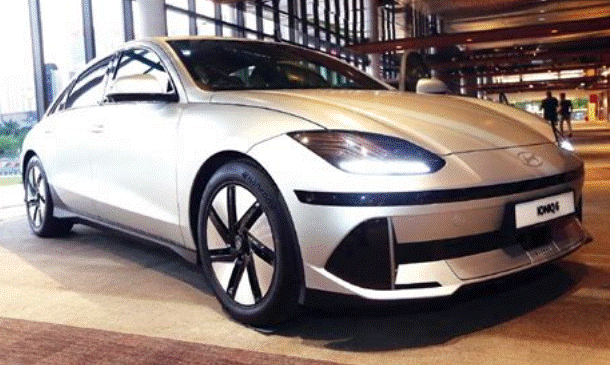JAKARTA – Indonesia is fast emerging as a key player in the electric vehicle (EV) market, thanks to its strategic investments and ambitious plans to become a regional hub for sustainable mobility. In a significant boost to its EV ambitions, the country has secured a $1.1 billion battery manufacturing plant partnership with a joint venture between South Korea’s Hyundai Motor Group and LG Energy Solution. This move marks a pivotal step in Indonesia’s goal to lead Southeast Asia in the electric vehicle race, as it positions itself to meet growing demand and navigate the increasingly competitive landscape within the ASEAN region.
The state-of-the-art facility, set to begin operations in the next few years, will be the first of its kind in Southeast Asia. It will serve as a cornerstone of Indonesia’s broader strategy to capitalize on its abundant natural resources, particularly nickel, a crucial raw material in the production of EV batteries. The facility is expected to generate thousands of jobs, boost local production capabilities, and support the Indonesian government’s target of producing 600,000 electric vehicles annually by 2030.
This development comes at a time when Southeast Asia is experiencing a rapid shift toward electric vehicles. Indonesia’s push to become the region’s EV hub is spurred by its ambitious goals and the growing competition from neighboring ASEAN nations. Countries like Thailand, Malaysia, and Vietnam have ramped up their efforts to attract foreign investments, implement pro-EV policies, and build local manufacturing capacities in order to capture a larger share of the global EV market.
The Competitive Landscape of ASEAN EV Markets
As ASEAN countries look to transition to greener, more sustainable transportation solutions, Indonesia is keenly aware of the intensifying competition. Thailand, for instance, has already established itself as a regional leader in EV manufacturing, with numerous international carmakers setting up plants. Malaysia has also seen a surge in EV investment, with both local and global companies setting up production lines to meet domestic and regional demand. Vietnam, too, has emerged as a rising player, driven by its homegrown electric car maker, VinFast, which recently expanded its reach to global markets, including the U.S. and Europe.
Despite the stiff competition, Indonesia’s unique advantages – including its rich nickel reserves, a large domestic market, and supportive government policies – give it a competitive edge in the race to become an EV manufacturing hub. Indonesia’s government has rolled out a series of incentives for companies investing in EV and battery production, including tax breaks, subsidies, and plans to implement nationwide infrastructure for electric charging stations.
Indonesia’s Long-Term EV Vision
In addition to the Hyundai-LG battery plant, Indonesia has secured partnerships with other global giants in the EV and energy sectors, signaling strong confidence in its long-term EV strategy. The Indonesian government has also launched a comprehensive roadmap focusing on the electrification of public transport, including buses and motorcycles, and incentives for consumers to switch to EVs. The roadmap includes the development of a local EV ecosystem, comprising not only manufacturing but also research and development, battery recycling, and after-sales services.
The country is also focused on creating a domestic supply chain for EV production, which would reduce dependence on imports and make electric vehicles more affordable for Indonesians. Local automakers like Toyota and Mitsubishi have already committed to increasing their EV production capacity in Indonesia, while global players like Tesla are closely watching the country as a potential production base for Southeast Asia.

Hyundai Motor leads Indonesia’s EV market
Environmental Impact and Sustainability Goals
Beyond economic considerations, Indonesia’s EV push is part of its broader sustainability agenda. The country aims to reduce its carbon emissions by 29% by 2030, and transitioning to electric vehicles is seen as a critical component of that goal. The expansion of the EV market is expected to contribute significantly to reducing the country’s reliance on fossil fuels and cutting down urban air pollution, especially in major cities like Jakarta, where traffic congestion and air quality are pressing concerns.
Challenges Ahead
Despite the optimism surrounding Indonesia’s EV future, challenges remain. The government needs to ensure that the necessary infrastructure – such as EV charging stations and maintenance services – is in place to support the growing number of electric vehicles on the road. Additionally, there are concerns over the environmental impact of mining and processing the vast amounts of nickel required for battery production, which Indonesia must address through sustainable mining practices and waste management solutions.
Still, Indonesia’s 2024 push to become Southeast Asia’s EV powerhouse is gaining momentum, as the country works to strike a balance between environmental responsibility and industrial growth. With continued investment, government support, and strategic partnerships with global players, Indonesia is poised to become a dominant force in the ASEAN EV market and a key supplier of the batteries that will power the region’s green future. (zai)

